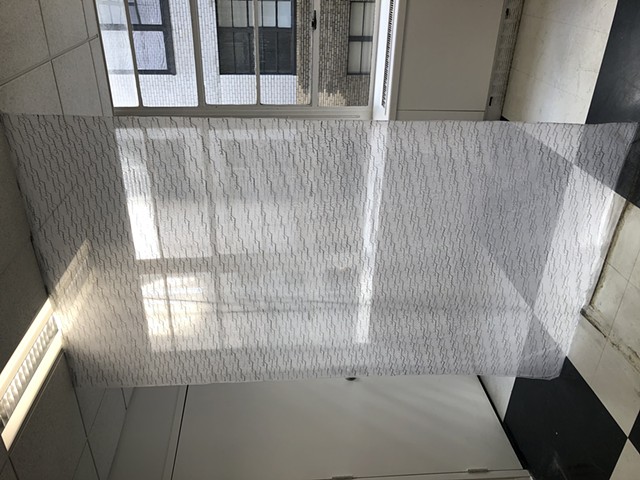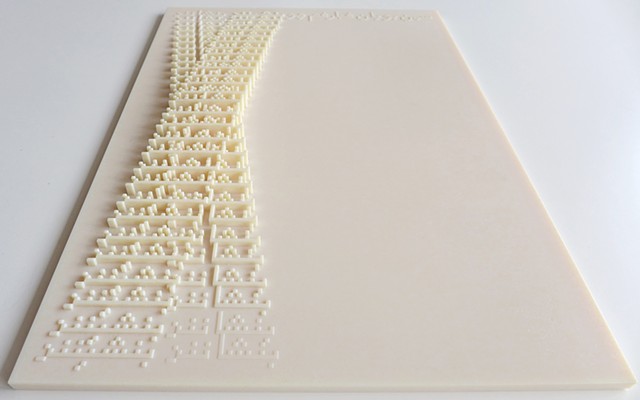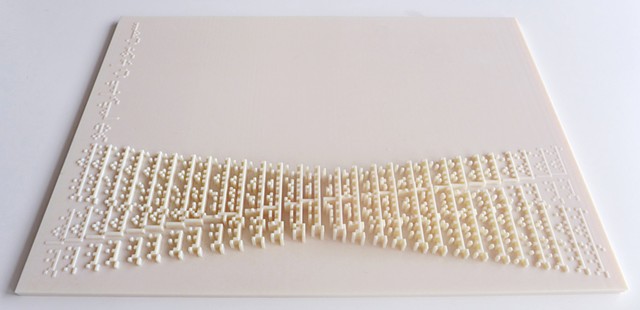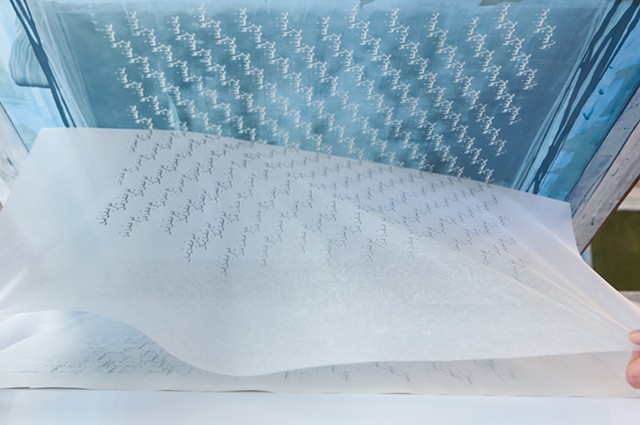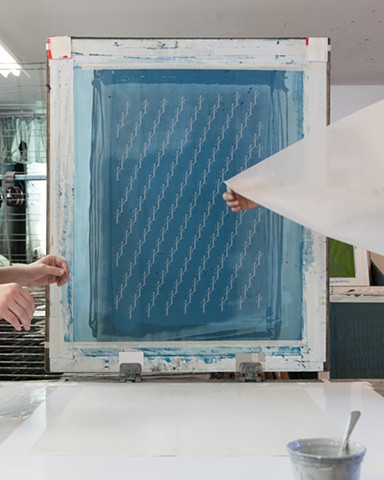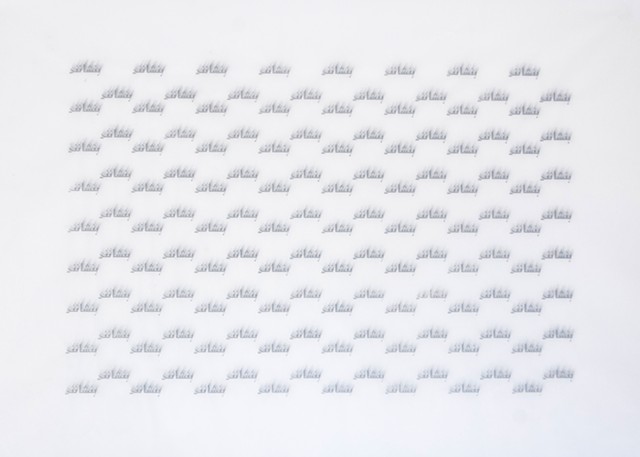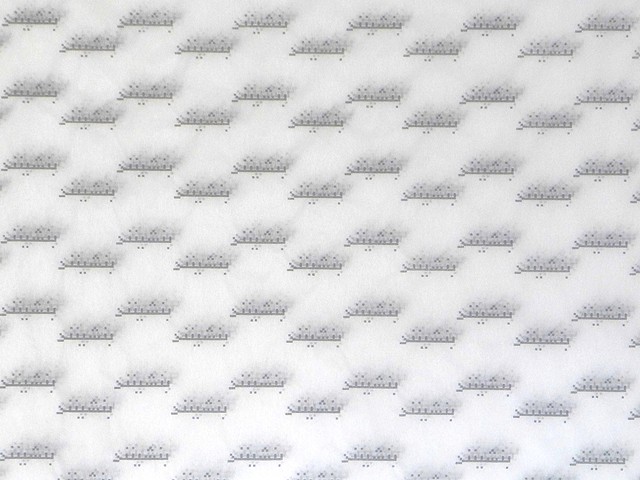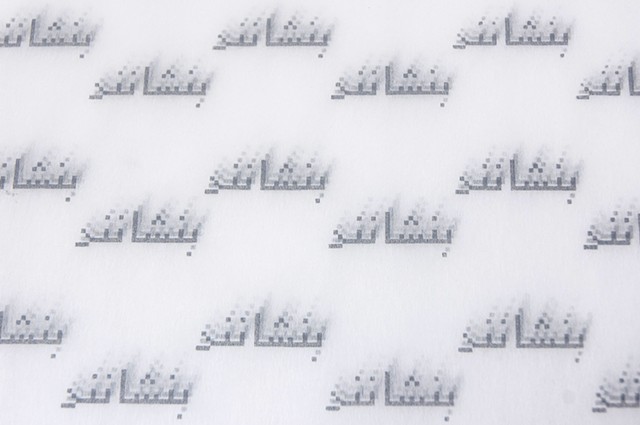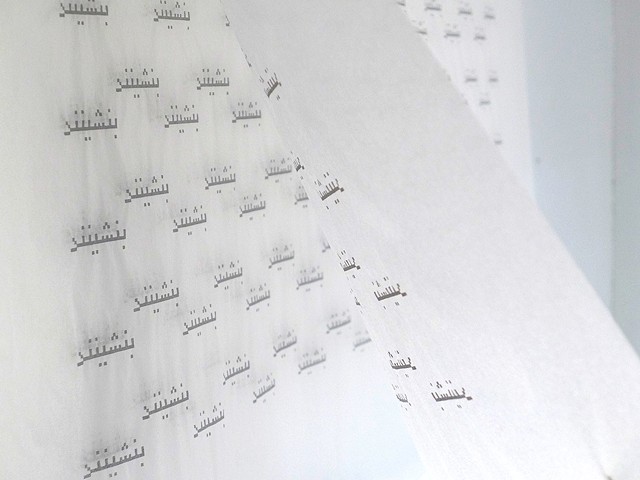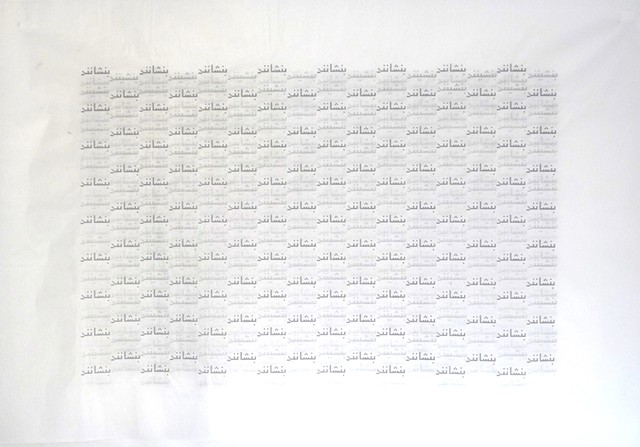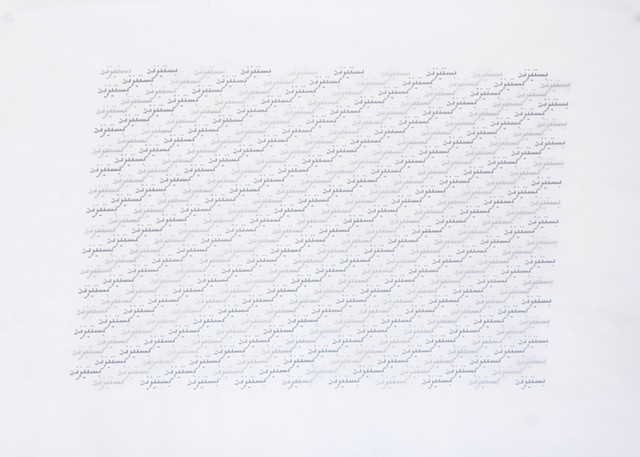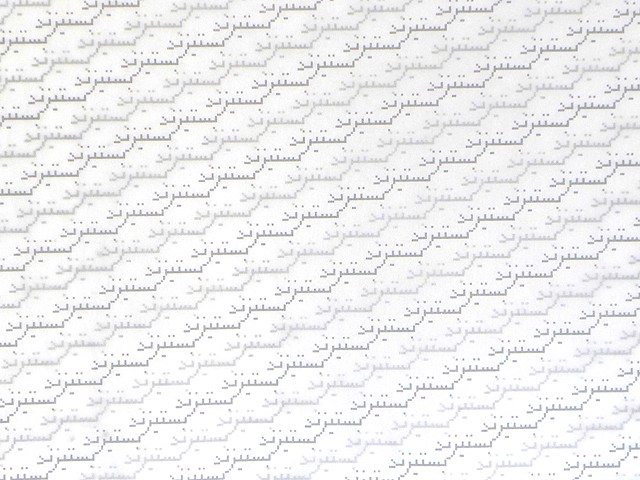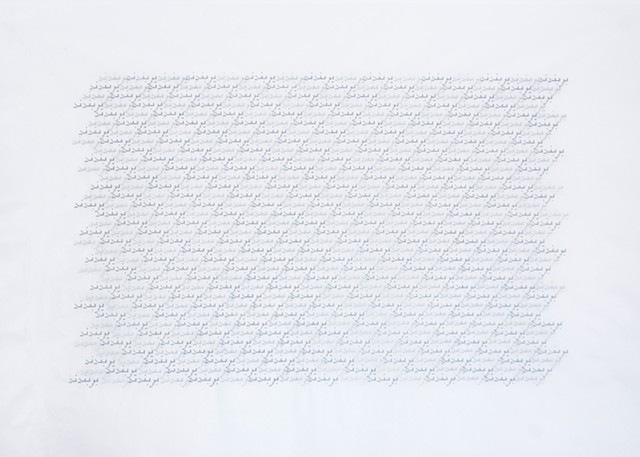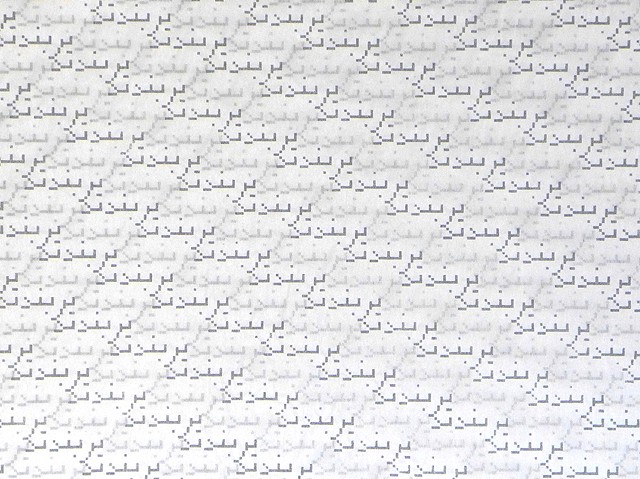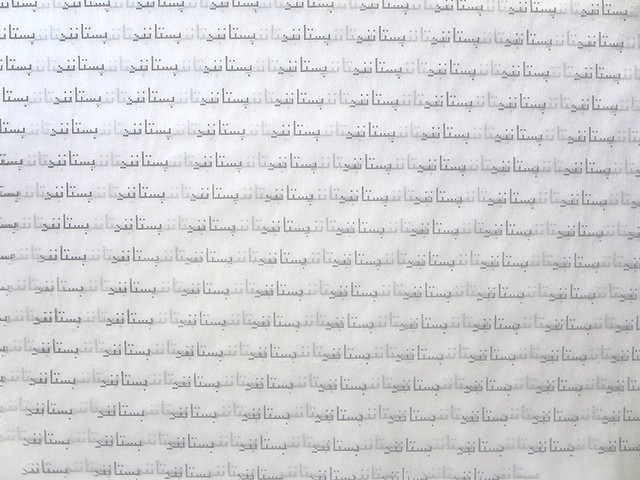The Jasmine Scented Ones
This collection of screen prints on Japanese Rayon Lens visually pairs verbs borrowed from a Hafez poem, The Jasmine Scented Ones in order to meditate on the breathtaking tension intended by the poet between them throughout the poem visually.
Each stanza of the poem is a meditation on wordplay between two verbs, at times similar in form but contradicting in meaning and everything in between.
The poem opens with the stanza, As the jasmine-scented ones sit, they settle the dust of sorrow, an image of rest which sets the mood for the poem to follow. Sitting and settling stem from the same root in Persian- Benshinanad, Benshanand. At times the verbs are very close in form; sometimes they’re identical, but evoke different meanings in separate lines.
Inspired by the way Hafez plays with each verb pair, I designed a constellation of the words having in mind the final interlocking pattern, and creating a dust-like effect.
Designing a pixelated typography, I rid the verbs from questions of calligraphy and examine them in a contemporary light, a more authentic approach to my practice.
The following piece gives more context to this body of work, developed during my residency at Women's Studio Workshop, written by Liz Thabet: Conditions of Longing:Golnar Adili in the Studio
